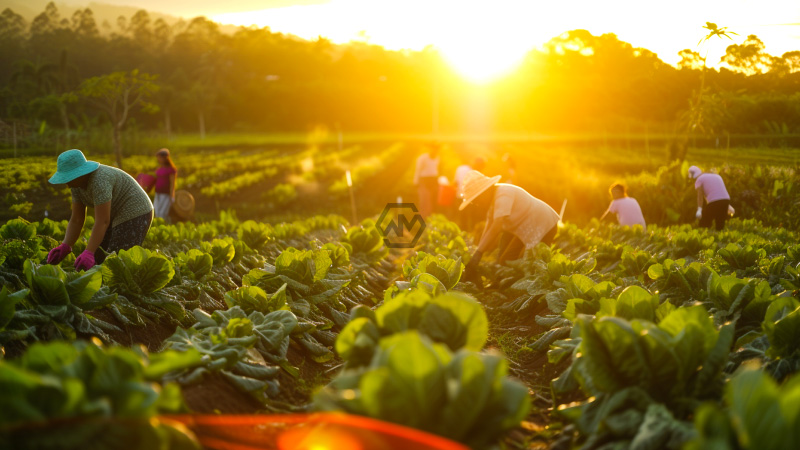- Heatwaves jeopardize crop yields, causing premature maturation and yield reductions of 15-25% in crops like wheat.
- Over 831,000 hectares of crop area across 16 states in India were affected by extreme weather events, including heatwaves, in 2022-23.
- Long-term solutions such as crop diversification, heat-tolerant varieties, and sustainable farming practices are imperative for the agriculture sector to withstand heatwave challenges.
Heatwaves pose a critical threat to agriculture, inducing stress in crops and impeding their growth. The repercussions are evident, with crops like wheat experiencing premature maturation, leading to significant yield reductions.
Experts emphasize the indispensable role of long-term solutions in bolstering the resilience of the agriculture sector against heatwave challenges.
Agricultural Resilience after a Heatwave
Heatwaves wreak havoc on agriculture, causing stress in crops and hampering their growth. Crops like wheat suffer from premature maturation, leading to significant yield losses. In the 2022-23 season, India witnessed over 831,000 hectares of crop area affected by extreme weather events, including scorching heatwaves, highlighting the urgent need for proactive solutions to protect agricultural productivity.
Long-term strategies are essential for fortifying the agriculture sector against heatwave challenges. Measures such as crop diversification, adoption of heat-tolerant varieties, and sustainable farming practices are crucial interventions. Investing in research and development and promoting climate-smart agricultural techniques can help mitigate the adverse impacts of heatwaves, ensuring the sector’s resilience in the face of changing climate patterns.
The agriculture sector faces an uphill battle against heatwaves, which disrupt crop growth and reduce yields. Wheat production, in particular, suffers from premature maturation due to extreme heat, resulting in substantial losses. With over 831,000 hectares of crop area affected by heatwaves in India during the 2022-23 season, there is a pressing need for long-term solutions to safeguard agricultural sustainability.
To combat the adverse effects of heatwaves, stakeholders must prioritize resilience-building measures in agriculture. This includes diversifying crops, adopting heat-resistant varieties, and implementing sustainable farming practices. By investing in innovation and embracing climate-smart strategies, the agriculture sector can weather the challenges posed by heatwaves and ensure food security in the face of climate change.
In conclusion, the imperative for long-term solutions to mitigate the impact of heatwaves on agriculture is undeniable. By implementing proactive measures such as crop diversification, adoption of heat-tolerant varieties, and sustainable farming practices, stakeholders can bolster the resilience of the agriculture sector against evolving climate patterns. Through concerted efforts and innovation, we can navigate the challenges posed by heatwaves and safeguard global food security for generations to come.
“Amidst the scorching heatwaves, the resilience of agriculture hinges upon our ability to cultivate sustainable solutions for long-term survival.”



